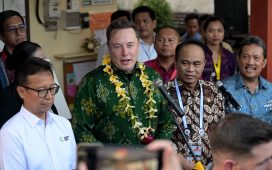Just a few years ago, China was on track to challenge the United States’ dominance in artificial intelligence. The balance of power was tilting in China’s direction because it had abundant data, hungry entrepreneurs, skilled scientists and supportive policies. The country led the world in patent filings related to artificial intelligence.
Today, much has changed. Microsoft – an icon of American technology – helped the start-up OpenAI usher its experimental chatbot, ChatGPT, into the world. And China’s tech entrepreneurs are shocked and demoralised. It has dawned on many of them that despite the hype, China lags far behind in artificial intelligence and tech innovation.
“Why wasn’t ChatGPT invented in China?” they asked. “How big is the ChatGPT gap between China and the US?”
They added: “The Chinese equivalent of ChatGPT? Don’t take it too seriously.”
They’re also asking more fundamental questions about the country’s innovation environment: Have censorship, geopolitical tensions and the government’s growing control of the private sector made China less friendly to innovation?
“The development of any significant technological product is inseparable from the system and environment in which it operates,” said Mr Xu Chenggang, a senior research scholar at the Stanford Centre on China’s Economy and Institutions.
He cited TikTok’s Chinese-language sister app Douyin as the sort of innovation that Chinese companies might be unable to achieve in the future because of government limitations on the industry.
“Once the open environment is gone, it will be challenging to create such products,” he said.
If, a decade ago, China was the wild, wild East for tech entrepreneurship and innovation, it’s a very different country now.
Starting in the 1990s, the country’s biggest tech companies were private enterprises funded with foreign money. The government mostly left the industry alone because it did not understand the Internet and did not expect it to become so powerful.
By the mid-2010s, China had become a tech power that could rival the US. Its top Internet companies were worth about the same in the markets as their US counterparts. Many of the Chinese companies’ products, such as the messaging app WeChat and the payment service Alipay, worked better than similar American mobile Internet products. Venture capital flooded in from all over the world. For a while, the country was producing as many unicorns, or start-ups valued at more than US$1 billion (S$1.34 billion), as Silicon Valley.
All of that changed over the past few years as Beijing went after some of the country’s biggest tech companies and its highest-profile tech entrepreneurs. The aim was to ensure no institution or individual could wield influence on the Chinese society comparable to the Communist Party. The government took minority stakes and board seats in some of those companies, giving it effective control.
Along the way, Beijing tamed the industry’s ambition and blunted its innovative edge.
But tech companies and investors also have themselves to blame for falling behind their Silicon Valley counterparts. Even before the government started to impose a stronger hand on them, Chinese tech leaders were laser focused on making money and reluctant to spend on research projects that were not likely to yield revenue in the short term. After the government’s onslaught in the past few years, executives are even less inclined to invest in long-term ventures.
In 2021, the US led the world in total private investment in artificial intelligence and in the number of newly funded AI companies, which was three and two times the levels in China, according to Stanford University’s AI Index 2022 Annual Report.
But the government has been the biggest barrier to AI – its obsession with censorship perhaps its heaviest club. The availability of a wide range of data is crucial to developing technology like ChatGPT, and that is increasingly harder to come by in a censored online environment.







